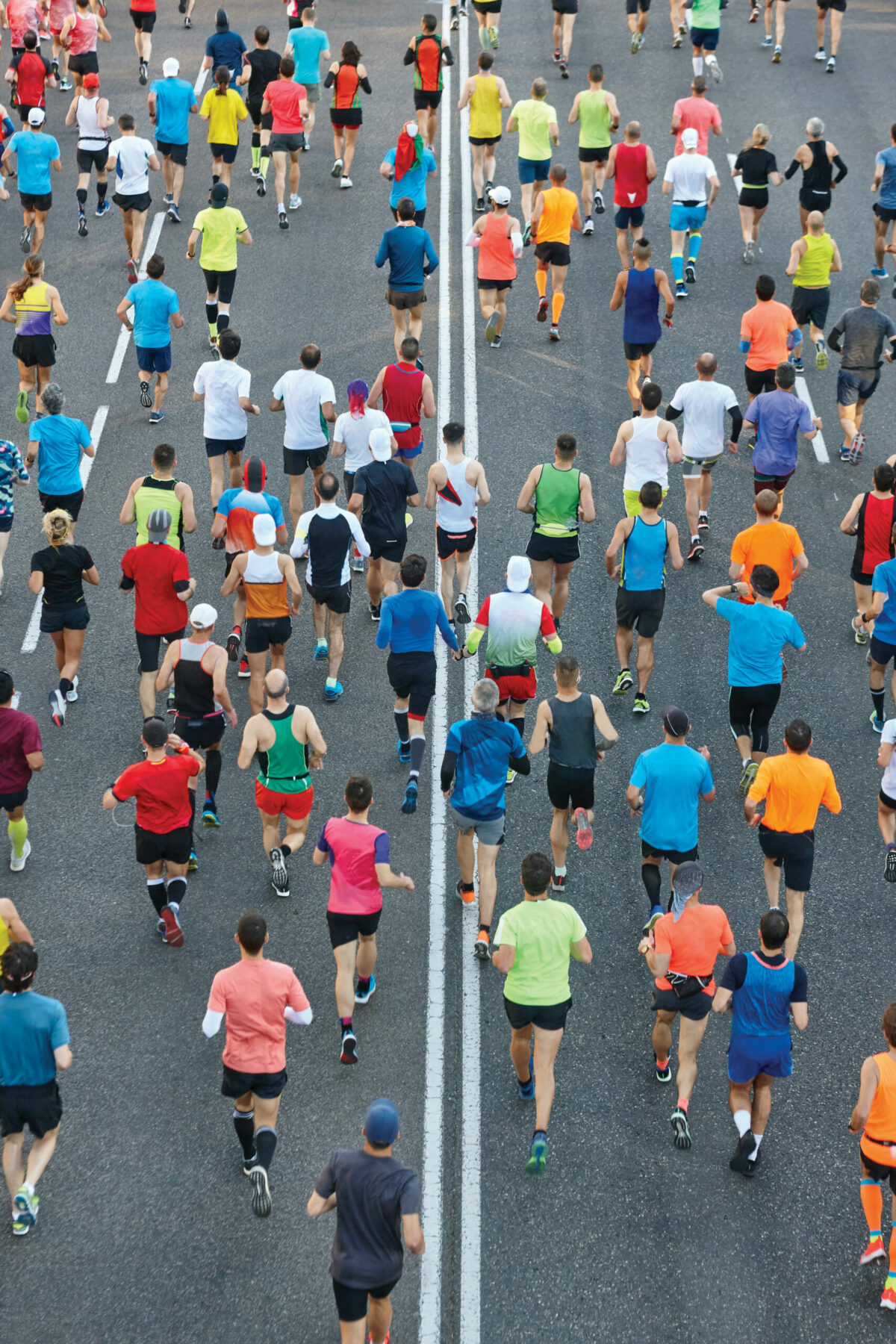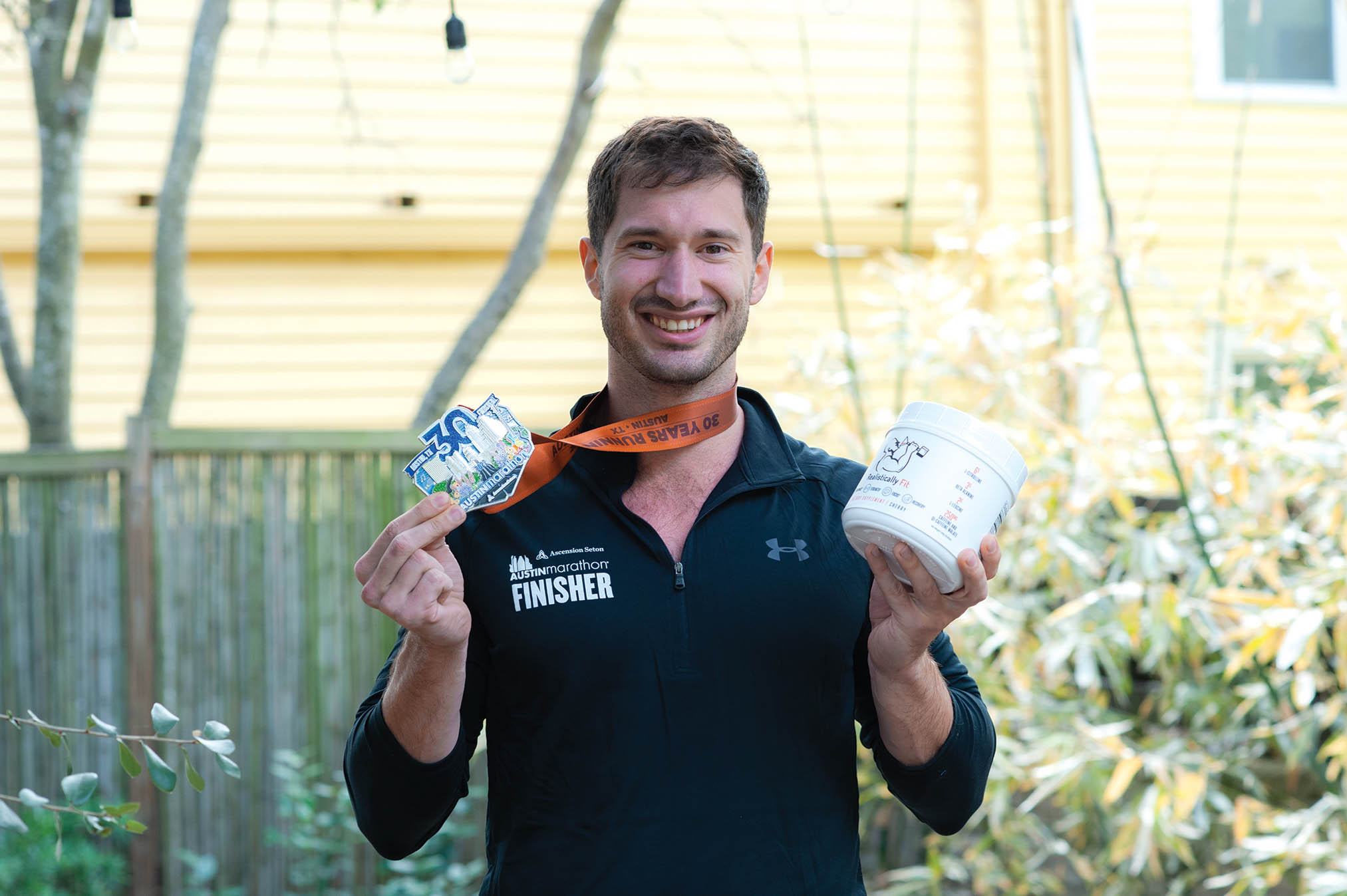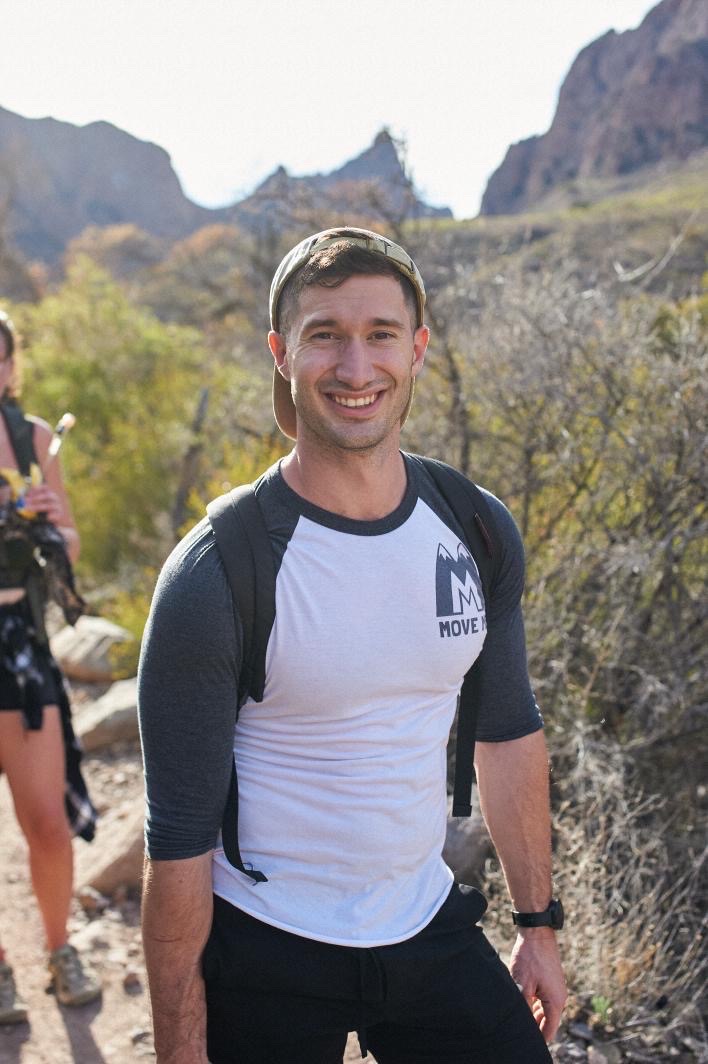My Experience Running a Marathon Without Training

Yes, I really did run a full marathon without any training. I bet you’re thinking I had a pretty compelling reason to do this… right? Wrong. I’m just your local personal trainer who thought he was immortal.
I knew I was in relatively good shape, had above-average cardiovascular endurance and was stubborn — or naive — enough to think I could do anything. So I figured, why not challenge myself and find my limits? Needless to say, I’m still alive and survived the race, but it was the hardest I’ve ever been pushed and the most pain I’ve ever been in. Here’s what I did last minute to prepare the best I could, and see if this is something you think you could do.
How I Prepared
I was going to run this race without a single day of training. The next best thing I could do was prepare my body. As a trainer, I knew the muscles that would be most active. Accessories would be my first line of defense. I bought socks that would prevent blisters from forming on my feet. I bought leggings with compression tape that would firmly grasp around my quads and hopefully prevent excessively stretching out the muscle. Most importantly, I had an anti-chafing deodorant stick. Deep down, I knew nothing would help more than actual training, but these accessories would have to do.
The next variable I was in control of was my diet. Thanks to my background in health, I knew I could increase my glycogen levels, aka storing more carbs in your body. There are a lot of scientific approaches to doing this, but to me, the nuances aren’t as important. I just ate high-carb foods such as pasta, banana bread and oatmeal a couple of days before the race. Your body will naturally store the carbs as glycogen in your muscles so it’s readily available. The morning of the race, I devoured half a loaf of banana bread and chugged half a gallon of Pedialyte. I was ready.
Running The Race
When you start running, your body switches between energy systems. This is why they say there’s a “runner’s high.” For the first 3 to 5 minutes, you’re essentially running without using oxygen to supply your muscles. For me, the first three miles never feel good. I’m waking up, adjusting to the weather and dealing with my body not wanting to run. Thankfully, I cruised through the first 13 miles of the race. I was under two hours, which is about a 9-minute mile pace. I was feeling on top of the world!
Despite the initial success, I knew what was coming. Everyone talks about the wall you hit around mile 18. As mile 16 approached, cramps started slowly creeping in. I slowed down when needed, hydrated with electrolytes and massaged the muscles that were acting up. Then, something started hurting that I had not prepared for — the sole of my foot started to burn. Of all my years of casually running, this has never happened.
In hindsight, I have size 12 feet on a 5-foot 9-inch frame. My feet are essentially flippers, and it should’ve been obvious that they were at risk of injury. At mile 18, they were inflamed and the longest eight miles of my life began. If you haven’t experienced plantar fasciitis, I hope you never do, but every step sends a sharp pain that travels halfway up your body.

Photo courtesy of Billy Bosco
The cramps also came into full effect. Each step sent a sharp pain through my body, then my muscles shook or stiffened uncontrollably. My body failed me, but one foot slowly kept getting placed in front of the other. This was what I signed up for, after all, and I didn’t want or expect it to be a cakewalk. It was supposed to push me to my breaking point so I could see how I’d respond mentally and physically.
Suddenly, everything in the world ceased to exist. All that mattered was putting one foot in front of the other and finishing what I started. My pace per mile dropped from 9 minutes to 15 minutes. Every couple of minutes of running, I stopped to massage my muscles, stretch the arch of my foot and catch my breath. The worst part is my heart rate was under control, and my breathing was calm. My lungs could manage, but my body had no idea what or why it was being put through so much for. Eventually, I limped my way through the finish line with a final time of 4:50. I just survived a marathon with absolutely no training. The only thing I wanted to do was collapse into a hot tub and never run again.
Can You Run A Marathon With No Training?
Yes, it’s definitely a possibility. The risks outweigh any benefit you could gain, though. The arches of my feet could have torn, and that ligament takes a long time to recover. Any other muscle could have torn and taken me out for months. Thankfully, my body was in good enough condition to sustain the 26 miles. I would never wish this pain on anyone, but I do feel a sense of pride in knowing what I accomplished.
About the Author

AFM ambassador Billy Bosco is an Austin-based personal trainer who sells his own fitness supplements. The world is full of deceptive marketing and fast-track approaches to health. It’s his mission to cut through this and help everyone become realistically fit.






